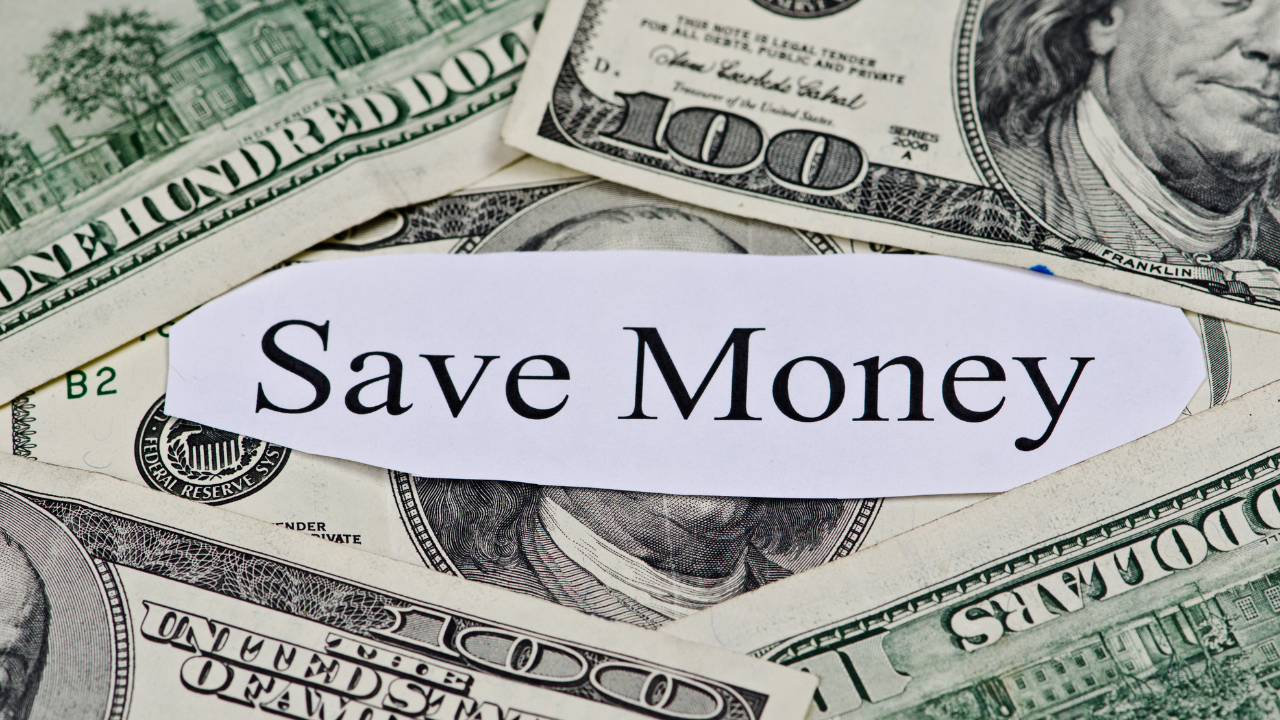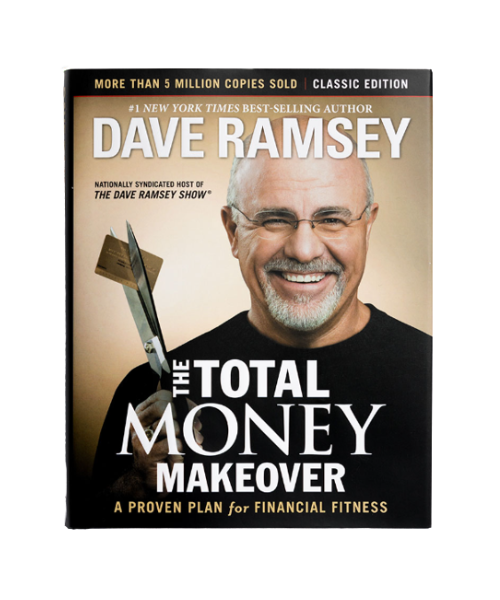Tired of Being Broke? 7 Money Tips to Relieve Financial Stress
Are you feeling like money is always a struggle? You’re not alone. Many people feel overwhelmed by the the constant pressure of staying afloat financial. So if you’re tired of being broke, we’re here to give you the tools to turn your finances in the right direction.
In this blog post we’ll cover 7 powerful strategies to help relieve financial stress and make more room in your budget so that you can enjoy financial security today.
1. Create a Budget and Stick to it
If you’re truly tired of being broke, one of the best ways to take control of your finances is to create a practical budget that you can maintain.
Start by figuring out how much money you have coming in each month and what your fixed expenses are.
Then, set limits for variable expenses, like dining out, shopping, or other miscellaneous expenses.
Here are a couple interesting details about the impacts of a budget:
- A study by the National Foundation for Credit Counseling found that those who stick to a budget have an average savings of $5000 per year.
- According to a study by the American Psychological Association, having a budget in place can reduce stress levels significantly, leading to better mental and physical health.
Check out this link to learn about the key reasons why budgeting is so important.
If you are ready to start a budget to take control of your financial future, here are the most common and effective ways to kick things off:
- Pen and paper: This is the most basic tool for creating a budget. Simply write down your income, expenses, and savings goals on a piece of paper.
- Spreadsheet software: Programs like Excel or Google Sheets allow you to create detailed budgets with formulas that automatically calculate totals and track changes over time.
- Mobile apps: Budgeting apps like Rocket Money connect to your bank and allow you to automate your budget on the go and easily record expenses.
A budget can help you prioritize your spending and avoid overspending. With a little discipline and some careful planning, you can start to see real progress towards your financial goals.

Use Rocket Money to easily connect your bank and track your spending.
Get a FREE 7-day trial by signing up today!
2. Save up an Emergency Fund for Peace of Mind
One of the best ways to get ahead of unexpected expenses is by saving up an emergency fund.
By having money in the bank specifically allocated for emergencies, you can rest easy knowing you won’t need to rely on credit cards or loans to cover unexpected costs.
Experts recommend saving at least 3-6 months worth of living expenses in your emergency fund.
Here are some common financial emergencies and their average costs:
- Medical Emergencies: According to a study by NerdWallet, the average cost of a medical emergency is $2,000.
- Car Repairs: The average cost for major car repairs can range from $500-$1,000.
- Home Repairs: Depending on the issue, home repairs can cost anywhere from a few hundred dollars to several thousand dollars.
- Job Loss: The financial impact of job loss varies greatly depending on individual circumstances, but experts recommend having at least 3 months worth of living expenses saved in case of unemployment.
Whether it’s a medical bill, car repair, or something else entirely, having an emergency fund can help ease financial stress if you’re sick and tired of being broke.
So, take some deliberate steps today and start saving up for your emergency fund – your future self will thank you!
3. Pay Off Debt Quickly to Avoid Interest
Paying off debt quickly is crucial because of the interest that the lender charges on unpaid balances on the borrowed amount.
Interest rates are added to outstanding debts over time, making it even more challenging to pay them off.
The longer you take to pay off your debt, the more money you end up owing due to compound interest.
Here are a list of the average debt amounts and interest rates for an American nowadays across these common loan types:
- Credit Cards: Average debt amount $7,951 / Average interest 24.25%
- Student Loans: Average debt amount $37,338 / Average interest 5.5%-8.05%
- Home Mortgages: Average debt amount $236,443 / Average interest 7.83%
- Auto Loans: Average debt amount $22,612 / Average interest 6.63%-11.38%
- Personal Loans: Average debt amount $7,368 / Average interest 11.52%
If you’re drowning in debt, it can feel like an impossible feat to pay everything off so it’s important to have a plan to tackle this.
Here are the most effective methods to clearing your debt and carving a path toward financial freedom:
Debt Snowball Method:
The snowball method is a debt repayment strategy that involves paying off the smallest debts first, while making minimum payments on all other larger debts.
Once the smallest debt is paid off, the amount that was being used to pay it off can then be applied towards the next smallest debt, and so on. This creates a “snowball” effect, as the payments towards the larger debts get bigger and bigger.
Debt Avalanche Method:
The avalanche method is a debt repayment strategy that involves paying off the highest interest rate debt first, while making minimum payments on all other lower interest rate debts.
Once the highest interest debt is paid off, the amount that was being used to pay it off can then be applied towards the next highest interest debt, and so on.
Both methods have their advantages and disadvantages!
Ultimately, the best method for paying off debt quickly will depend on your personal financial situation and which strategy works best for you.
Check out this link to learn more about the difference between the debt snowball vs. debt avalanche.
It might take some time and dedication, but if you’re really are tired of being broke, you can quickly pay off your debt by sticking to a plan and create a better financial future.

Get this audio book for FREE today and start your journey to financial freedom!
4. Negotiate Your Bills to Save Money
If you’re tired of being broke all the time, it might be time to take control of your finances by starting negotiating your payments.
You might be surprised to learn that many companies are open to negotiation when it comes to your bills.
Many companies have dedicated customer service teams trained to handle negotiations, meaning they are expecting and prepared for customers to request lower rates.
Here are a few interesting facts when it comes to bill negotiation:
- The Cable and Telecommunications Association for Marketing reported that 93% of cable and internet service providers were willing to negotiate with customers.
- A survey by the Consumer Reports National Research Center found that 89% of customers who negotiated their cell phone bills were able to get a better deal.
- The National Association of State Utility Consumer Advocates reports that consumers who negotiate their utility bills can save anywhere from $100-$500 per year.
So, instead of just accepting the monthly charges and struggling to make ends meet, take action and ask for a better deal.
Whether it’s your cable or internet provider, phone company, or even your credit card issuer, don’t be afraid to speak up and negotiate.
You might just end up saving a significant amount of money each month and feeling a little less stressed about your finances.
5. Automate Your Payments to Avoid Late Fees
Another simple way to alleviate money stress if you’re tired of being broke is by automating your finances.
By setting up automatic payments for recurring expenses like rent or car payments, you can ensure that you never miss a payment and avoid late fees.
This will not only save you money in the long run, but it will also eliminate the worry of constantly monitoring your bills.
write me a list of some statistics about the money savings from automating payments
Some statistics about the money savings from automating payments include:
- According to a survey by Bankrate, 84% of Americans who have automated their finances say it has helped them save more money.
- Another study by the American Psychological Association found that automating finances can reduce stress and improve overall financial well-being.
- According to a survey by Varo Money, 54% of Americans who automate their finances feel more in control of their money.
Automating your finances can give you peace of mind and more time to focus on other important aspects of your life. Try it out and see how it can benefit you.
6. Stick to Using Cash to Limit Your Spending
By using physical money instead of credit cards, you can better visualize and keep track of your spending.
When you see the amount of cash leaving your wallet, it can help you prioritize your purchases and avoid overspending.
Plus, studies have shown that people tend to spend more when using credit cards, so sticking to cash could also save you money in the long run.
- According to a study by MIT, people are willing to spend up to 100% more when using credit cards compared to cash.
- The act of physically handing over cash can trigger a sense of loss, making individuals think twice before making a purchase.
- Credit card users are more likely to make impulsive purchases compared to those who primarily use cash.
So, if you’re looking to improve your spending habits and save money, consider switching to cash for your purchases.
If you are tired of being broke, why not give it a try and see how much of a difference it can make in your financial situation.
7. Sell Unwanted Items to Make More Money
A great way to alleviate financial stress is by selling items you no longer need.
Thanks to online marketplaces like Amazon, eBay and Facebook Marketplace, it’s never been easier to turn unwanted items into extra cash.
Whether it’s old clothes, electronics, or household items, there’s a market out there for almost anything you can think of.
Here are some stats about how much money someone can make selling household items online:
- According to eBay, sellers made an average of $3,900 per year by selling items they no longer needed.
- A study by Decluttr found that Americans could make an average of $2,000 by selling their unwanted tech devices alone.
- The popularity of online marketplaces has led to a rise in “side hustles,” with 1 in every 4 Americans selling items online for extra income.
Not only will selling unused items help you declutter your space, but it can also provide a much-needed financial boost.
So if you’re tired of being broke, this is a fast and easy way to put some extra money in your pocket.
If you want to see how much money I made my first month selling things online, Check out this video!
Conclusion
Managing your finances is more than just saving money. It requires planning, discipline and the willingness to make changes when needed.
Take care of your financial future now by implementing the strategies mentioned above.
Create a budget that works for you, track your spending, save up an emergency fund, make payments on debt quickly, negotiate bills, automate payments and use cash when possible.
And don’t forget to take advantage of online marketplaces like Amazon or eBay by selling things you no longer need – it could be an easy way to make some extra money!
Don’t wait any longer to start building a solid financial foundation for yourself.
Start tackling these financial goals now and watch as your bank account starts growing! To learn even more about managing your finances, check out our resource center.
Frequently Asked Questions (FAQ)
Q: How can I improve my financial situation?
A: There are several ways to improve your financial situation, including creating a budget, tracking your spending, saving up an emergency fund, negotiating bills, automating payments, and using cash for purchases.
Q: Can I save money by negotiating my bills?
A: Yes, many companies are willing to negotiate with customers for lower rates. Studies have shown that consumers who negotiate their bills can save anywhere from $100 to $500 per year.
Q: Why is automating payments beneficial?
A: Automating your finances can help you avoid late fees, save more money, reduce stress, and feel more in control of your money.
Q: How can using cash save me money?
A: Studies have shown that people tend to spend less when using cash compared to credit cards. It also allows you to better visualize and keep track of your spending, making it easier to prioritize purchases and avoid overspending.







